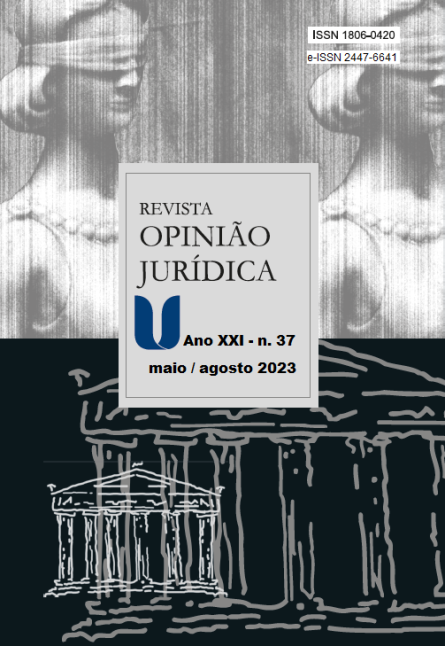STRUCTURAL VIOLATIONS IN THE INTER-AMERICAN HUMAN RIGHTS SYSTEM: AN ANALYSIS BASED ON THE CASE FAVELA NOVA BRASÍLIA VS. BRAZIL
DOI:
https://doi.org/10.12662/2447-6641oj.v21i37.p1-29.2023Keywords:
Inter-American Court of Human Rights, human rights, structural litigation, Federal Court of JusticeAbstract
Objetivo: The main objective of this work is to understand whether the Brazilian conviction by the Inter-American Court of Human Rights (IDH Court), in the case of Favela Nova Brasília vs. Brazil, caused material and symbolic effects capable of helping to face a structural litigation caused by the malfunction of the public security system in the state of Rio de Janeiro.
Methodology: The deductive method and bibliographic-documentary research are adopted, with a qualitative approach.
Results: Despite the importance of the Inter-American Human Rights System, the almost complete failure to comply with the penalties presented in the decision that condemns Brazil for the atrocities committed in the case in question, demonstrates the country's disregard for the realization of human rights, as well as an evident violation of international obligations. It is also worth noting, in this sense, that none of the three measures fully adopted by Brazil, aimed at overcoming the problem related to the public security system in the state of Rio de Janeiro, has a structural character. Given this scenario, it is clear that, so far, the sentence has not caused the intended material or symbolic effects.
Contributions: The Brazilian conviction in the case of Favela Nova Brasília v. Brazil, despite not having produced all the conjectured results, it had an unexpected material effect: it served as a driving force for the proposal of ADPF 635, known as “ADPF das Favelas”. The aforementioned action proved to be an important instrument to face the nefarious violations of human and fundamental rights caused by the public security policy of the state of Rio de Janeiro, as well as a landmark in terms of the empowerment of victims, who saw in the STF a forum of political deliberation and a locus in which their demands could be met. Still in this sense, the Action directly addresses the fact that police violence affects, above all, the black population that inhabits the favelas, an important aspect in the fight against structural racism. This reality reinforces the capacity of the Inter-American Human Rights System to cause transformative impacts, as well as highlights the relevance of the work carried out by the Inter-American Court of Human Rights, especially in scenarios of extreme inequality, exclusion and violence such as the Brazilian one.
Published
How to Cite
Issue
Section
License
CESSION OF COPYRIGHTS
The submission of articles to analysis for publication on Opinião Jurídica implies the author(s) transfers copyrights to Centro Universitário Christus – UNICHRISTUS for reproduction, publicizing, distribution, printing and publication, according to the Publication Norm 414R, Opin. Jur., Fortaleza, year 12, n. 16, p.1-414, Jan./Dec. 2014, costs to be bore by UNICHRISTUS, in whatever format or means that may or shall exist, in accordance to articles 49 and following of Federal Law 9.610/98.
1. In ceding copyrights, the author(s) agrees to do so in exclusivity, free of charge and for the totality of the work.
2. UNICHRISTUS may make the work, in its entirety or in parts, available for scholarly purposes, without altering its contents, except for small corrections that are deemed necessary.
3. The cession of copyrights is valid in all countries and for versions of the material in its original language or translated into a foreign language.
RESPONSIBILITY FOR THE CONTENT
By submitting an article, the author(s) declare to have sole responsibility for the content of the piece and is(are), therefore, responsible for any judicial or extrajudicial measures referring to it.
1. In case of joint authorship, all authors are considered collectively responsible, except when proved otherwise.


















